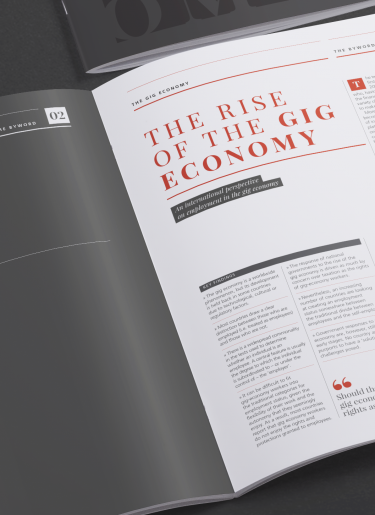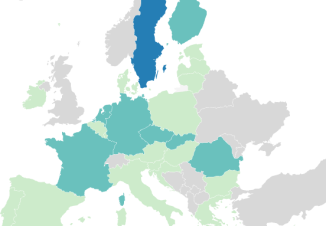
Should those working in the gig economy have the same rights as employees?
The term ‘gig economy’ was first coined as far back as 2009 to refer to people who, having lost traditional jobs in the financial crash, had turned to a variety of short-term, freelance roles to make a living.
More recently the term has become associated with the use of internet-based technology platforms that claim to act as an online market place where potential customers are put in touch with freelance service-providers.
An important question is whether such companies really are just putting customers in touch with independent service- providers, or whether they can be said to employ those who provide work through their online platforms. This has implications for labour market regulation across the world. Should those working in the gig economy have the same rights as employees, should they be treated as independent businesses like any other, ordoes the answer lie somewhere between the two?
To see how the challenge of the gig economy is being met around the world, we gathered data from 40 different countries. It is clear that in many countries it is felt that the traditional model of what constitutes employment needs
to be revisited in the light of the growth in gig work – although no country has so far found the optimum way forward.
Countries taking part in our research:Austria, Belarus, Belgium, Bulgaria, Brazil, Canada, China, Croatia, Cyprus, Czech Republic, Denmark, France, Finland, Germany, Greece, Hungary, India, Italy, Japan, Kazakhstan, Latvia, Luxembourg, Malta, Mexico, Netherlands, New Zealand, Panama, Peru, Poland, Romania, Russia, Slovakia, Slovenia, South Korea, Spain, Turkey, United Arab Emirates, United Kingdom, Ukraine, and United States.Download the report


